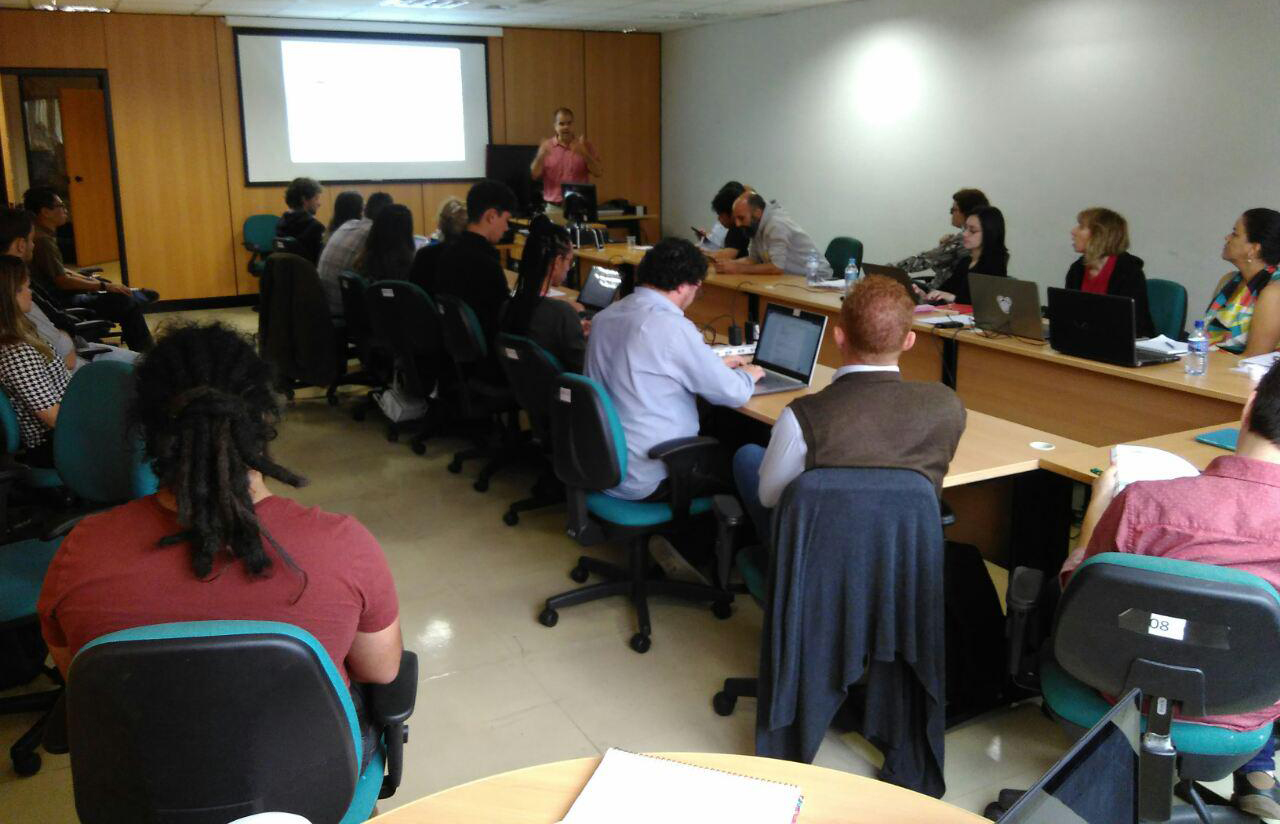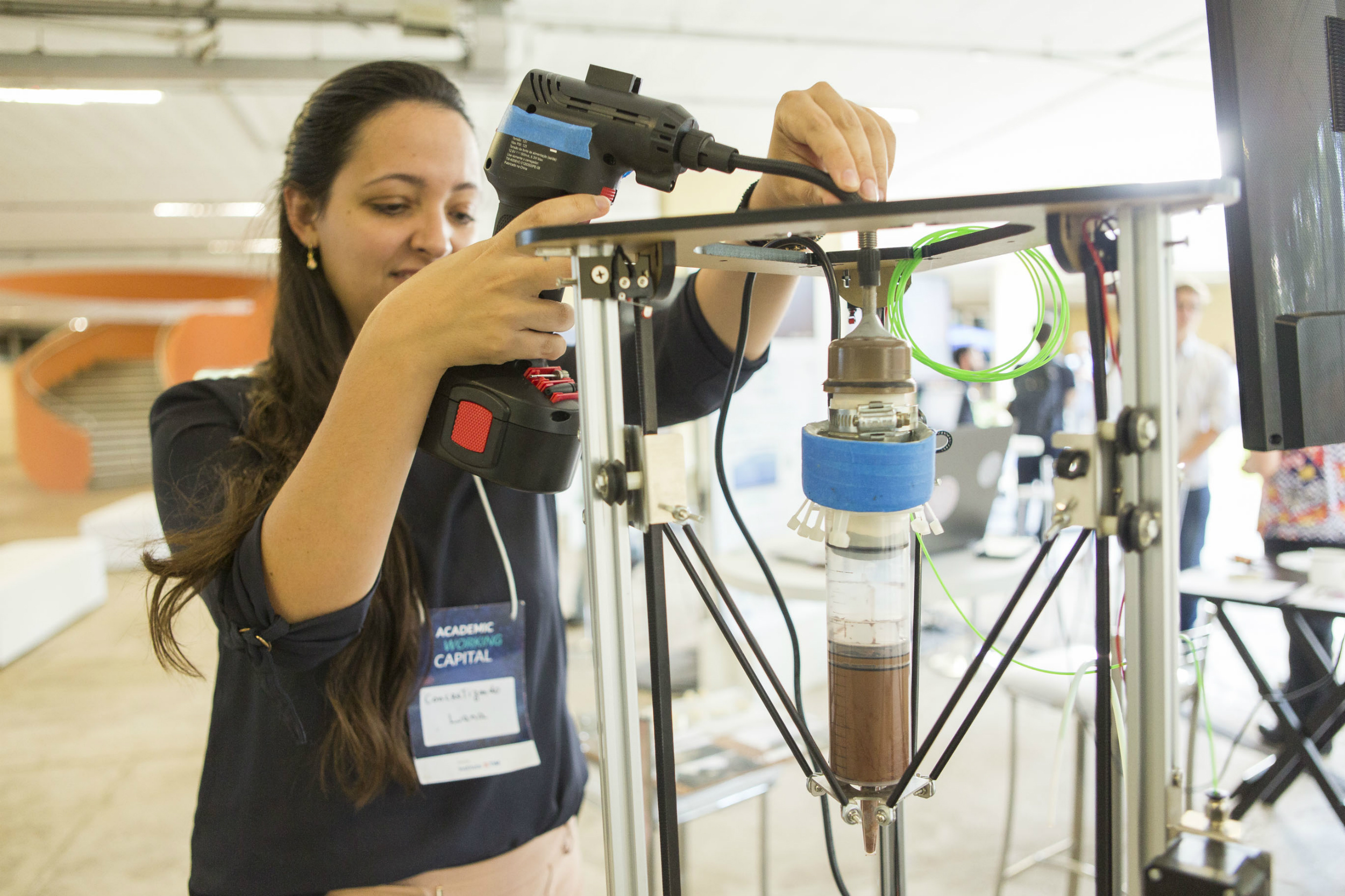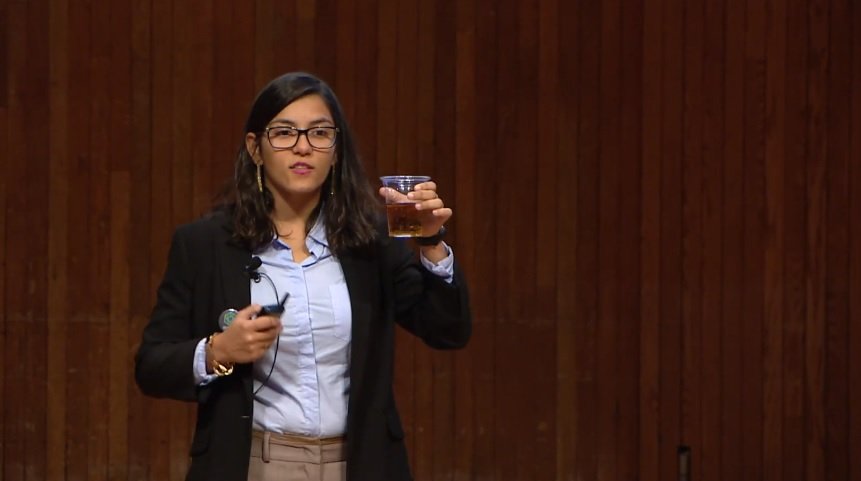
On February 26th and 27th, the Mapas Culturais Management Workshop was held in Brasília-DF, in the building of the Ministry of Culture (MinC), bringing together members of the Mapas Culturais Network, public managers, developers and researchers, as well as Instituto TIM. The purpose of the event was to gather feedback and experience reports, challenges and learning from software installations to discuss the scope of the project in the next one and a half year.
The workshop was promoted by the Ministry of Culture (MinC) and the Federal University of Goiás (UFG). UFG, through its Research, Development and Innovation Laboratory in Interactive Media (Media Lab), will be responsible for executing the work plan of the project in the next 18 months, in partnership with MinC and related secretariats (Brazilian Institute of Museums-IBRAM, Living Culture, National System of Culture and Libraries).
“In 2017 we designed this partnership with UFG. The idea is to be able to take a few more steps on the platform, always seeing two dimensions: sectorial and regional vision”, general coordinator of Information Technology at MinC, Nitai Silva, explained at the opening of the workshop. “The partnership with MinC has four goals: to provide stable versions of the Mapas Culturais software; providing training and supporting materials; formalize the governance model and activate the developer community; and to provide and deploy the Mapas Culturais software in at least 30% of Brazilian cities with more than 500,000 inhabitants,” added the coordinator of the Laboratory of Participatory Public Policies of UFG, Dalton Martins.
The first day of the workshop was dedicated to sharing information about the next steps of the project and reports on the uses, challenges and needs of improvement of the Mapas Culturais deploys in Santo André-SP (CulturaAZ), State of São Paulo (SP Estado da Cultura), IBRAM (Museus BR), Ceará (Mapa Cultural do Ceará), Federal District (Mapa nas Nuvens) and Living Culture Network (Rede Cultura Viva).
Among the main needs are the standardization of public information and data for the Information Access Law; improvements in visualization (Santo André); the challenge of protecting oneself with backups (Federal District); and the generation of indicators (Living Culture Network). Other shared reports were that, in São Paulo, the platform is used as a great cultural agenda; that IBRAM uses the data of the Museus BR platform as direct mail, creating a continuous contact relationship with the registered museums; and that in Ceará, the application Agenda.CE was developed, which draws data from the Mapa Cultural do Ceará and implemented tools for contact with users.
On the second day, the group participated in a workshop on the Rapid Participatory Diagnosis (DRP) method. The resulting diagnosis, based on reports from the deploys of the Mapas Culturais Network, aimed to build the vision of the project’s strategy for 2018. “This meeting with managers and technical staff as listeners tries to think about what Mapas can achieve at a more general level” sums up Leonardo Germani of Media Lab. The workshop was mediated by Media Lab researcher Daniela Ribas Ghezzi.






































































































